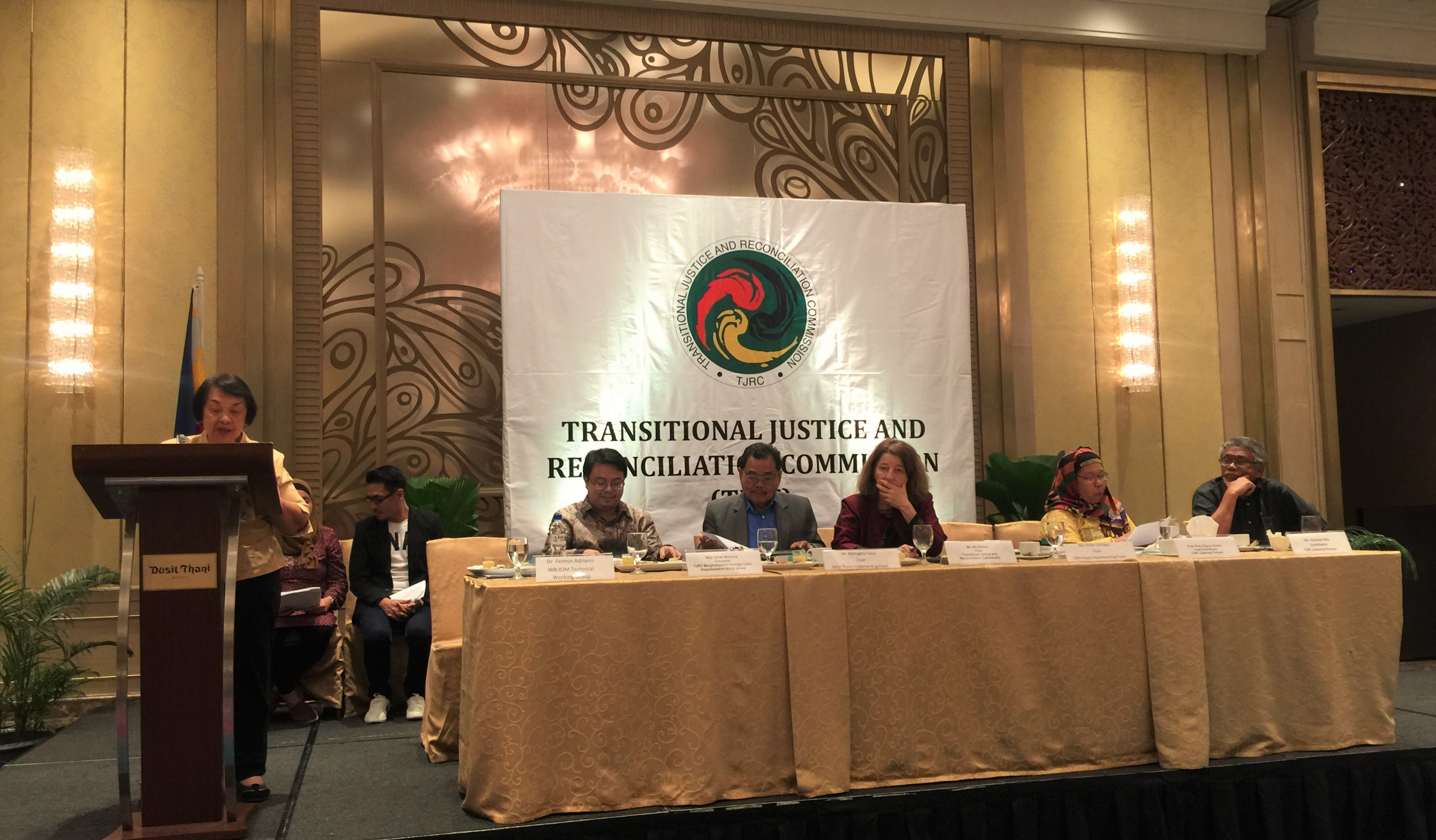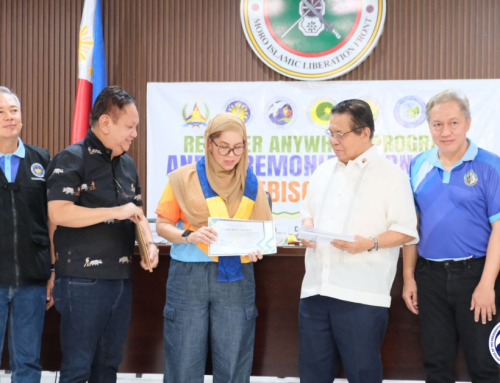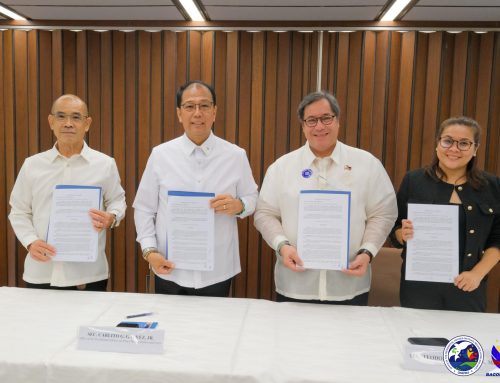TJRC Public Launch
20 February 2017
Dusit Thani Hotel, Makati City
Assalamulaikum. Magandang hapon po sa inyong lahat. Greetings to the distinguished guests at the presidential table. My dear friends.
As we were reminded in the beginning of the program, the TJRC was mandated to “undertake a study and recommend to the Panels the appropriate mechanisms to address legitimate grievances of the Bangsamoro people, correct historical injustices, and address human rights violations and marginalization through land dispossession, towards healing and reconciliation.” The TJRC was also mandated to “recommend programs and measures that would bring about the reconciliation of the different communities that have been affected by conflict.”
 In behalf of the Presidential Adviser on the Peace Process, Secretary Jesus G. Dureza, I commend the excellent work by the TJRC presented here today: reports on the Listening Process; Dealing with the Past and Land Dispossession in the Bangsamoro; and Land: Territory, Domain and Identity. These valuable reports will guide our work for justice and reconciliation to help victims of conflict to put their grievances and hurts to rest, and to address the various forms of injustices committed not only to individuals but also to the Bangsamoro as a people.
In behalf of the Presidential Adviser on the Peace Process, Secretary Jesus G. Dureza, I commend the excellent work by the TJRC presented here today: reports on the Listening Process; Dealing with the Past and Land Dispossession in the Bangsamoro; and Land: Territory, Domain and Identity. These valuable reports will guide our work for justice and reconciliation to help victims of conflict to put their grievances and hurts to rest, and to address the various forms of injustices committed not only to individuals but also to the Bangsamoro as a people.
These reports will immensely contribute to the resolution of outstanding issues in conflict-affected areas in the Bangsamoro, for example, the legacy of land dispossession. Concrete measures have been recommended and they are well taken. Promoting accountability and strengthening the rule of law in relation to past and present wrongs, including crimes identified under international conventions to which the Philippines is a signatory, will be a focus of the implementation phase. But we will be remiss if we did not also undertake healing and reconciliation among the different individuals and communities affected by the destructive conflict.
As we look at the implementation of the comprehensive recommendations, we will be cognizant of the initiatives related to transitional justice that in the past made them ineffective, as already mentioned by Dr. Bleeker.
In his several pronouncements, President Rodrigo Roa Duterte has underscored the need for the Philippines as a nation to address the historical injustices committed against the Bangsamoro people. We know – as TJRC has noted in its report – that it will take time to address these issues and bring forth durable peace in the Bangsamoro. But with the strong political will of the Government as articulated by President Duterte himself, and supported by the government bureaucracy and the Filipino people, we believe that the struggle of the Bangsamoro people for justice and truth will bear fruit.
Working closely with the MILF Implementing Panel, we look forward to the early establishment of the National Transitional Justice and Reconciliation Commission on the Bangsamoro which is the main entity tasked with implementing the many recommendations of the TJRC. We look forward especially to a gender and culturally sensitive implementation of the report.
We know though that governance is a two-way process, from the top and from the bottom. The strong political will of the leadership only gains credence and significance if accompanied by robust public participation.
The Government has initiated a public-led undertaking called the People’s Peace Tables. It is a platform for public participation in peacebuilding. The “table” after all is a metaphor for a place where we talk, and share, and laugh, and solve problems. Thus, ordinary and extraordinary people both have a chance to own the process of building a peaceful nation. Any one can form a peace table and I invite you to form one. It is a venue that will allow building of relationships, a place for healing and reconciliation. It is where people’s voices can and will be heard and taken seriously.
The Listening Process was a unique and precious part of the TJRC process. With the MILF, we would like to continue this track because it is the right track. People’s voices are important and we must listen… listen to understand, especially listen to those people who have long been denied the right to speak and be heard.
At the root of the Mindanao conflict is the deprivation of four fundamental human needs for security, development, fair access to decision-making and acceptance of identity. Extreme deprivation of these four fundamental human needs must be addressed once and for all if we do not want social conflict to protract.
The implementation phase of this program is now in the hands of Filipinos. While we thank the international community for their immense support – and we thank them sincerely for that – we now as Government, in strong partnership with the MILF and the Bangsamoro people, as well as the rest of the Filipino people – will embark on what is rightly the national execution of a comprehensive program of dealing with OUR PAST. It is only right that we do this. This is our decision. This is our dream.










